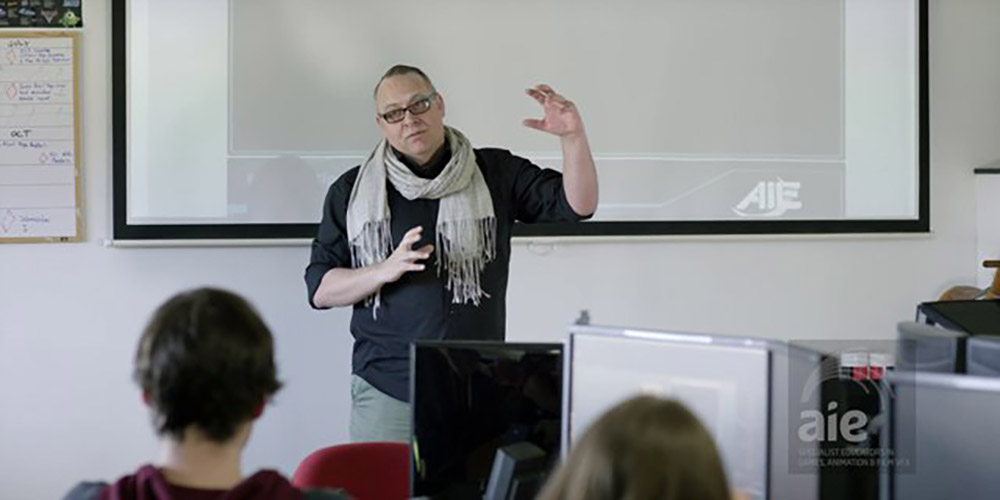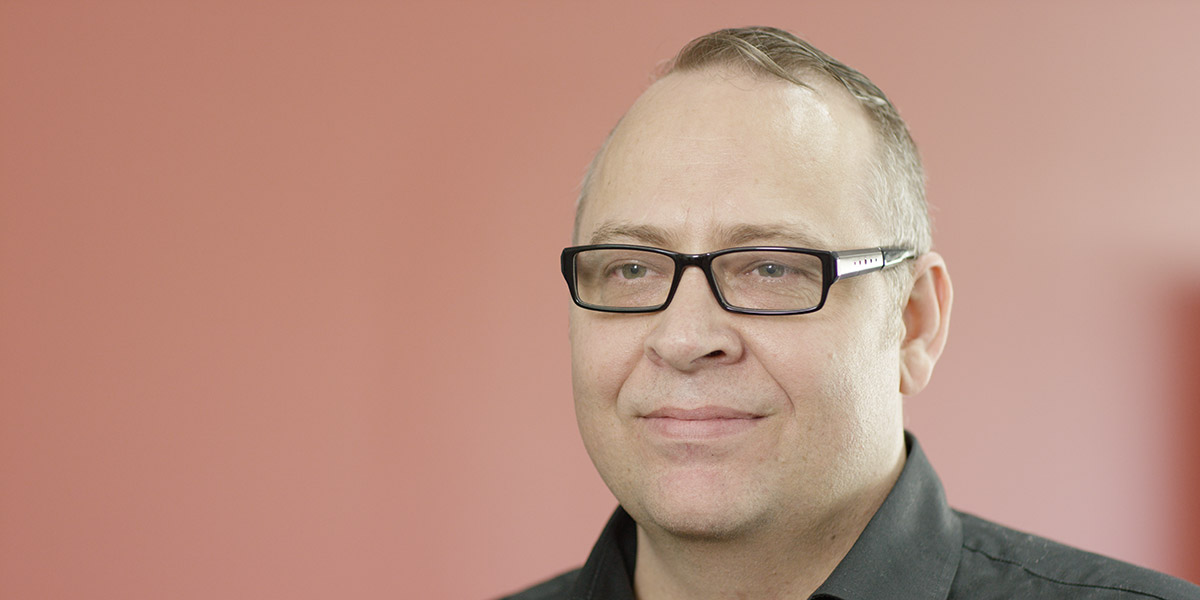Teacher Profile: Dave Scotland
Dave Scotland teaches Game Art and Animation at AIE’s Canberra campus. With over 14 years of CG production knowledge and experience, he’s worked for some of the biggest clients in the entertainment industry including Disney, Warner Bros. Plastic Wax and Liquid Animation. He started out, in production, as a 3D Animator and Technical Director before moving into the world of Compositing, Digital Visual Effects and Motion Graphics. We asked Dave to share some of that experience and how it has informed his career in education...
Tell us how your interest in animation began. What are your earliest memories of picking up a pencil and thinking, hey I’m actually good at this?
At an early age I realised I had a fascination with sci-fi and especially the VFX being created for it. When I researched how to become a digital VFX artist, I found out there where very few jobs available and artists were using $500,000 Flame suites at the time. This didn't leave much room for rookies to enter the field. So I decided to pursue another avenue which could afforded someone, just starting out, to enter the CG industry. That other avenue was 3D animation…
How did your interest in art and animation develop as you grew up?
I remember being drawn to animation at a very early age, perhaps as early as eight years old. I would set up toys and Star Wars figures and stop-motion animate primitive scenes and scenarios. I would even stretch out fishing line and fly my aircraft models along it, which of course had to be blown up with fireworks.
Who or what were some of your formative influences?
Certainly the major sci-fi classics of Star Wars, Star Trek and Thunderbirds, but I definitely felt a strong connection with the works of Walt Disney and Chuck Jones. I also followed a number of movie directors and would watch films based on who created them instead of who was in them.
Can you recall the point at which you felt you might pursue this as a career?
I was 27 when I finally decided to take the leap. I went from IT contractor to struggling artist in one day and have never regretted it. Well maybe once or twice, but you soon recall why you made the choice, the industry has a way of keeping you hooked...

How did you score your first job in the industry?
My first job was not even in animation, I landed a job up-rezzing models for game cinematic work at Plastic Wax in Sydney. I would be given game-rez characters, which would need re-modelling to a higher detail level, then re-rigged for animation. It was a pretty easy gig and allowed me to start forming my human network and to become more familiar with the studio environment.
What did you discover about animation and VFX in your early career that you had no idea about before you started working?
The sheer volume of decisions you make in a day. I quickly realised that any creative process is simply decision making. What tool? What setting? What colour? Which method? How to interpret? Which order? It's all about making decisions and the more time you spend in the trade, the better decisions you make. That's how you earn more money and move up in the ranks. Make better decisions that will make the boss money, and avoid making poor decisions which cost the boss money. Easy.
How did you end up at the AIE?
After the birth of my daughter in 2013, I made the call to move back to the city I grew up in, Canberra. It is renowned for being a great place for bringing up kids and I wanted to provide a safe environment for her. Through the DLF mail-list, I happened to see a post which mentioned AIE Canberra, which I didn't even know existed. Having spent a few years teaching CG at Southbank Institute of Technology in Brisbane, I thought I'll go and have a chat with the Head of School. One thing led to another and here we are...
What is your personal approach to teaching?
I like to start by inspiring the students through examples of outstanding eye-candy, then break down the misconceptions of how difficult the process must be by teaching the formulas for creative and technical success. I like to teach using various systems of checks and balances against proven criteria and processes. Then students can be creative within an achievable scope and to an industry standard.
Lastly, do you have any other advice for current or prospective AIE students?
Make sure you research exactly what is involved in your field of interest, before you commit to a formal course. I have found that if you are passionate and you know where you want to go, the concepts and skills are very easy to learn, but if you are not then these processes are extremely difficult to wrap your head around and you will struggle.
